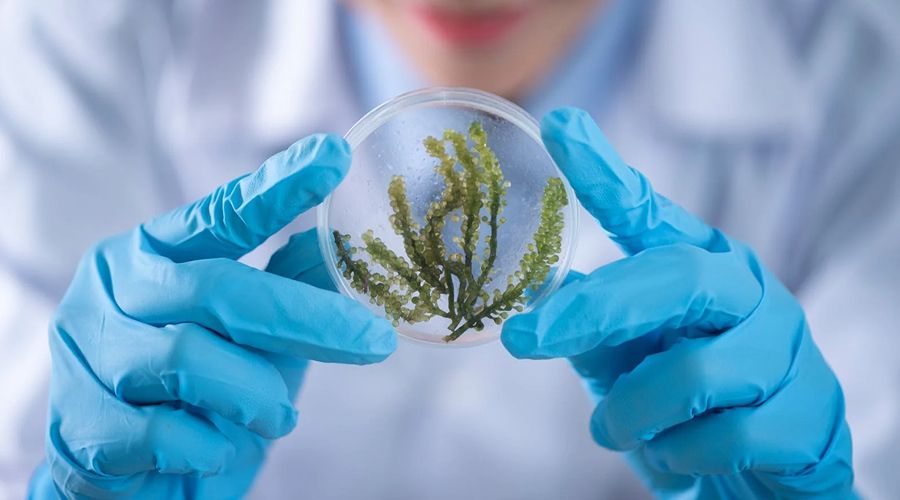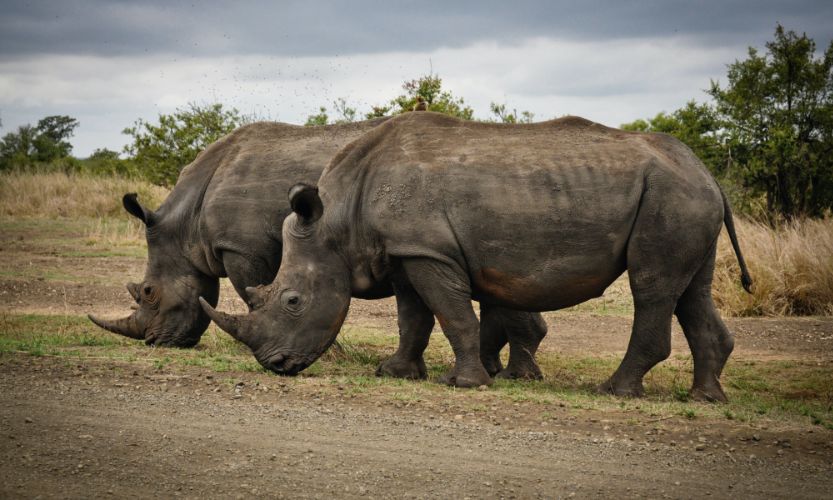
保护环境的重要性
The Importance of Protecting the Environment
Environmental protection is one of the most pressing issues facing our planet today. We are facing a number of environmental challenges, such as climate change, deforestation, pollution, and loss of biodiversity. These issues threaten not only our environment, but also our health, economy, and quality of life. Therefore, it is crucial that we take action to protect our environment.
环境保护是当今地球面临的最紧迫的问题之一。我们正面临着气候变化、森林砍伐、污染和生物多样性丧失等一系列环境挑战。这些问题不仅威胁着我们的环境,还威胁着我们的健康、经济和生活质量。因此,我们采取行动保护环境是至关重要的。
One of the main reasons why we need to protect the environment is to preserve the planet's natural resources. Our planet provides us with a wide range of resources, such as clean water, air, and fertile land. These resources are essential for our survival and well-being, and we need to ensure that they are not depleted or destroyed.
我们需要保护环境的主要原因之一是保护地球的自然资源。我们的星球为我们提供了广泛的资源,如清洁的水、空气和肥沃的土地。这些资源对我们的生存和福祉至关重要,我们需要确保它们不被耗尽或破坏。
Another important reason to protect the environment is to prevent the negative effects of pollution. Pollution can cause a range of health problems, from respiratory issues to cancer. It can also harm wildlife and ecosystems, leading to a loss of biodiversity. Additionally, pollution can have a negative impact on our economy, as it can lead to decreased tourism and reduced property values.
保护环境的另一个重要原因是防止污染的负面影响。污染会导致一系列健康问题,从呼吸系统问题到癌症。它还会损害野生动物和生态系统,导致生物多样性的丧失。此外,污染会对我们的经济产生负面影响,因为它会导致旅游业的减少和财产价值的降低。
In order to protect the environment, we need to take action on both an individual and a collective level. As individuals, we can reduce our carbon footprint by conserving energy, recycling, and using environmentally-friendly products. We can also educate ourselves about environmental issues and spread awareness to others.
为了保护环境,我们需要在个人和集体层面采取行动。作为个人,我们可以通过节约能源、回收利用和使用环保产品来减少碳足迹。我们也可以对环境问题进行自我教育,并将环保意识传播给他人。
At a collective level, governments and organizations can implement policies and regulations that protect the environment. They can invest in renewable energy sources, such as wind and solar power, and encourage sustainable practices in agriculture and industry. Additionally, they can fund research and development of new technologies that help to reduce pollution and protect the environment.
在集体层面,政府和组织可以实施保护环境的政策和法规。他们可以投资风能和太阳能等可再生能源,并鼓励农业和工业的可持续做法。此外,他们还可以资助有助于减少污染和保护环境的新技术的研究和开发。
In conclusion, environmental protection is essential for our survival and well-being. We need to take action to preserve our natural resources, prevent pollution, and promote sustainable practices. By working together, we can create a healthier, more sustainable planet for future generations.
总之,环境保护对我们的生存和福祉至关重要。我们需要采取行动保护自然资源,防止污染,促进可持续发展。通过共同努力,我们可以为子孙后代创造一个更健康、更可持续的地球。
气候变化对环境的影响
The Effects of Climate Change on the Environment
Climate change is one of the most significant environmental issues facing our planet today. It is caused by a variety of factors, including greenhouse gas emissions, deforestation, and land-use changes. The effects of climate change are far-reaching and can have a profound impact on our environment.
气候变化是当今地球面临的最重要的环境问题之一。它是由多种因素引起的,包括温室气体排放、森林砍伐和土地使用变化。气候变化的影响是深远的,并可能对我们的环境产生深远的影响。
One of the most significant effects of climate change is rising global temperatures. As temperatures continue to rise, we are seeing a range of environmental changes, such as melting glaciers, rising sea levels, and more frequent and intense heat waves. These changes can have a devastating impact on wildlife, ecosystems, and human communities.
气候变化最显著的影响之一是全球气温上升。随着气温持续上升,我们看到了一系列的环境变化,如冰川融化、海平面上升以及更频繁和更强烈的热浪。这些变化会对野生动物、生态系统和人类社区产生毁灭性的影响。
Another effect of climate change is increased frequency and severity of natural disasters, such as hurricanes, floods, and wildfires. These disasters can cause significant damage to infrastructure, homes, and natural resources, leading to loss of life and economic instability.
气候变化的另一个影响是自然灾害的频率和严重程度增加,如飓风、洪水和野火。这些灾害会对基础设施、房屋和自然资源造成重大破坏,导致生命损失和经济不稳定。
Climate change can also lead to changes in precipitation patterns, which can have a significant impact on agriculture and food production. Droughts and floods can damage crops and reduce yields, leading to food shortages and increased prices.
气候变化还会导致降水模式的变化,从而对农业和粮食生产产生重大影响。干旱和洪水会破坏作物,降低产量,导致粮食短缺和价格上涨。
In order to address the effects of climate change, we need to take action to reduce our greenhouse gas emissions and transition to cleaner, renewable energy sources. This can be achieved through a combination of individual actions, such as using energy-efficient appliances and reducing car use, and collective actions, such as implementing government policies and regulations that encourage sustainability and clean energy.
为了应对气候变化的影响,我们需要采取行动减少温室气体排放,向更清洁、可再生能源过渡。这可以通过个人行动(如使用节能电器和减少汽车使用)和集体行动(如执行鼓励可持续性和清洁能源的政府政策和法规)相结合来实现。
In conclusion, climate change is a significant environmental issue that is having a profound impact on our planet. We need to take action to reduce our greenhouse gas emissions and transition to cleaner, more sustainable energy sources in order to address the effects of climate change and create a healthier, more sustainable planet for future generations.
总之,气候变化是一个重大的环境问题,正在对我们的星球产生深远的影响。我们需要采取行动,减少温室气体排放,向更清洁、更可持续的能源过渡,以应对气候变化的影响,为子孙后代创造一个更健康、更可持续的地球。
环境保护的重要性
The Importance of Environmental Protection
Environmental protection is becoming increasingly important in today's world. With the rapid growth of industrialization and urbanization, we are seeing the degradation of our planet's natural resources and ecosystems. It is our responsibility to take action to protect the environment for future generations.
环境保护在当今世界变得越来越重要。随着工业化和城市化的快速发展,我们看到地球的自然资源和生态系统正在退化。为子孙后代采取行动保护环境是我们的责任。
One of the most pressing issues in environmental protection is climate change. The burning of fossil fuels and deforestation are major contributors to the release of greenhouse gases, which trap heat in the Earth's atmosphere and cause global temperatures to rise. This can lead to a wide range of negative consequences, including sea level rise, more frequent and severe weather events, and the extinction of plant and animal species.
环境保护中最紧迫的问题之一是气候变化。化石燃料的燃烧和森林砍伐是温室气体释放的主要原因,温室气体会将热量困在地球大气中,导致全球气温上升。这可能导致一系列广泛的负面后果,包括海平面上升、更频繁和恶劣的天气事件以及动植物物种的灭绝。
To combat climate change, we need to take action on multiple fronts. This includes transitioning to clean energy sources such as solar and wind power, reducing our reliance on single-use plastics and other non-recyclable materials, and promoting sustainable agriculture practices. We also need to support policies and initiatives that promote environmental protection at the local, national, and international levels.
为了应对气候变化,我们需要在多个方面采取行动。这包括向太阳能和风能等清洁能源过渡,减少对一次性塑料和其他不可回收材料的依赖,并促进可持续农业实践。我们还需要支持在地方、国家和国际层面促进环境保护的政策和倡议。
In conclusion, environmental protection is essential for the long-term health and sustainability of our planet. It is our responsibility as global citizens to take action to address the pressing environmental issues of our time, and to ensure that future generations inherit a healthy and thriving planet.
总之,环境保护对于我们星球的长期健康和可持续性至关重要。作为全球公民,我们有责任采取行动解决我们这个时代紧迫的环境问题,并确保子孙后代继承一个健康和繁荣的地球。
个人在环境保护中的作用
The Role of Individuals in Environmental Protection
While governments and businesses have a major role to play in environmental protection, individuals also have an important part to play. There are a number of actions that individuals can take to reduce their environmental impact and promote sustainability.
虽然政府和企业在环境保护中发挥着重要作用,但个人也可以发挥重要作用。个人可以采取一些行动来减少对环境的影响并促进可持续性。
One of the simplest and most effective things individuals can do is to reduce their energy consumption. This can be achieved through simple actions like turning off lights and appliances when they are not in use, using energy-efficient light bulbs, and reducing reliance on air conditioning and heating. Conserving water is another important action that individuals can take, by reducing shower time, fixing leaky faucets, and using drought-resistant landscaping.
个人可以做的最简单和最有效的事情之一就是减少能源消耗。这可以通过一些简单的行动来实现,比如在不使用电灯和电器时关闭它们,使用节能灯泡,减少对空调和暖气的依赖。节约用水是个人可以采取的另一项重要行动,可以减少淋浴时间,修理漏水的水龙头,并使用抗旱景观。
Individuals can also reduce their environmental impact by adopting sustainable transportation practices. This can include carpooling, using public transportation, biking, and walking instead of driving. Choosing to purchase products made from sustainable materials and reducing consumption of single-use plastics can also make a big difference.
个人也可以通过采用可持续的交通方式来减少对环境的影响。这可以包括拼车,使用公共交通工具,骑自行车,步行而不是开车。选择购买由可持续材料制成的产品和减少一次性塑料的消费也会产生很大的影响。
In addition to taking individual actions, individuals can also advocate for environmental protection by supporting policies and initiatives that promote sustainability. This can include contacting elected officials to voice support for environmental policies, participating in local environmental groups, and spreading awareness about environmental issues through social media and other channels.
除了采取个人行动,个人还可以通过支持促进可持续性的政策和倡议来倡导环境保护。这可以包括联系民选官员,表达对环境政策的支持,参与当地环保组织,并通过社交媒体和其他渠道传播对环境问题的意识。
In conclusion, individuals have an important role to play in environmental protection. By taking individual actions to reduce energy consumption, conserve water, and adopt sustainable transportation practices, as well as advocating for environmental protection at the local, national, and international levels, we can help to create a more sustainable and healthy planet for future generations.
总之,个人在环境保护中扮演着重要的角色。通过采取个人行动减少能源消耗,节约用水,采用可持续的交通方式,以及在地方、国家和国际层面倡导环境保护,我们可以帮助为子孙后代创造一个更加可持续和健康的地球。
环境保护的经济效益
The Economic Benefits of Environmental Protection
Environmental protection is not just good for the planet, it can also be good for the economy. There are a number of economic benefits associated with environmental protection, including job creation, cost savings, and increased economic competitiveness.
环境保护不仅对地球有益,对经济也有好处。环境保护有许多经济效益,包括创造就业机会、节约成本和提高经济竞争力。
One of the most important economic benefits of environmental protection is job creation. Investment in renewable energy, energy efficiency, and other sustainable technologies can create new jobs in fields such as engineering, manufacturing, and construction. In addition, the shift towards a more sustainable economy can lead to the creation of new industries and business opportunities.
环境保护最重要的经济效益之一是创造就业机会。对可再生能源、能源效率和其他可持续技术的投资可以在工程、制造和建筑等领域创造新的就业机会。此外,向更可持续经济的转变可以创造新的产业和商业机会。
Another economic benefit of environmental protection is cost savings. By adopting more efficient practices and technologies, businesses can reduce their operating costs and increase their profitability. For example, businesses can save money by reducing energy and water consumption, and by using recycled materials instead of virgin resources.
环境保护的另一个经济效益是节约成本。通过采用更有效的实践和技术,企业可以降低运营成本,提高盈利能力。例如,企业可以通过减少能源和水的消耗,以及使用回收材料而不是原始资源来节省资金。
Finally, environmental protection can increase economic competitiveness. Businesses that adopt sustainable practices and technologies can position themselves as leaders in their industries, attracting customers who are increasingly concerned about environmental issues. In addition, countries that invest in environmental protection can gain a competitive advantage in the global marketplace, attracting investment and business opportunities.
最后,环境保护可以提高经济竞争力。采用可持续实践和技术的企业可以将自己定位为行业的领导者,吸引越来越关注环境问题的客户。此外,在环境保护方面投资的国家可以在全球市场上获得竞争优势,吸引投资和商业机会。
In conclusion, environmental protection is not just good for the planet, it can also be good for the economy. By creating new jobs, reducing costs, and increasing economic competitiveness, environmental protection can help to build a more sustainable and prosperous future.
总之,环境保护不仅对地球有好处,对经济也有好处。通过创造新的就业机会、降低成本和提高经济竞争力,环境保护有助于建设一个更加可持续和繁荣的未来。
环境保护与社会正义的交集
The Intersection of Environmental Protection and Social Justice
Environmental protection and social justice are closely intertwined issues. While environmental degradation affects all people, it often has a disproportionate impact on marginalized and vulnerable communities. Therefore, it is essential that environmental protection efforts also address issues of social justice.
环境保护与社会正义是紧密交织在一起的问题。虽然环境退化影响到所有人,但它往往对边缘化和弱势社区产生不成比例的影响。因此,环境保护工作也必须解决社会正义问题。
One of the most pressing environmental justice issues is air pollution. Low-income communities and communities of color are often located near polluting industries, highways, and other sources of air pollution, leading to a range of negative health impacts. To address this issue, environmental protection efforts must also address the root causes of pollution and work to ensure that all communities have access to clean air.
最紧迫的环境正义问题之一是空气污染。低收入社区和有色人种社区通常位于污染工业、高速公路和其他空气污染源附近,导致一系列负面的健康影响。要解决这个问题,环境保护工作还必须从根源上解决污染问题,努力确保所有社区都能呼吸到清洁的空气。
Water pollution is another environmental justice issue that requires attention. Poor communities often lack access to clean water, and are disproportionately impacted by water pollution from industrial and agricultural sources. Environmental protection efforts must work to ensure that all communities have access to clean and safe water.
水污染是另一个需要关注的环境正义问题。贫困社区往往无法获得干净的水,并且受到来自工业和农业来源的水污染的严重影响。环境保护工作必须努力确保所有社区都能获得清洁和安全的水。
In addition to addressing environmental justice issues, environmental protection efforts can also help to promote social justice. For example, investment in renewable energy and energy efficiency can create new job opportunities for marginalized communities, while also reducing greenhouse gas emissions and other forms of pollution.
除了解决环境正义问题,环境保护工作还有助于促进社会正义。例如,对可再生能源和能源效率的投资可以为边缘化社区创造新的就业机会,同时还可以减少温室气体排放和其他形式的污染。
In conclusion, environmental protection and social justice are closely intertwined issues. To build a more sustainable and just future, environmental protection efforts must also address issues of social justice and work to ensure that all communities have access to clean air, water, and a healthy environment.
总之,环境保护和社会正义是紧密交织的问题。为了建设一个更加可持续和公正的未来,环境保护工作还必须解决社会正义问题,并努力确保所有社区都能获得清洁的空气、水和健康的环境。
保护海洋环境的重要性
The Importance of Protecting the Ocean Environment
The ocean is one of the most important ecosystems on the planet. It is home to a diverse array of marine life, provides vital resources to humans, and plays a crucial role in regulating the Earth's climate. However, despite its importance, the ocean is facing a multitude of threats, many of which are caused by human activity. It is therefore essential that we take action to protect the ocean environment and ensure its long-term health.
海洋是地球上最重要的生态系统之一。它是各种海洋生物的家园,为人类提供了重要资源,并在调节地球气候方面发挥着至关重要的作用。然而,尽管海洋很重要,但它正面临着许多威胁,其中许多是由人类活动造成的。因此,我们必须采取行动保护海洋环境,确保其长期健康。
One of the biggest threats to the ocean is pollution. Every year, millions of tonnes of plastic, oil, and other pollutants are dumped into the ocean, harming marine life and damaging ecosystems. To combat this, it is important that we reduce our reliance on single-use plastics, properly dispose of waste, and develop cleaner technologies that can replace polluting industries.
海洋面临的最大威胁之一是污染。每年,数百万吨塑料、石油和其他污染物被排入海洋,损害海洋生物和破坏生态系统。为了解决这一问题,我们必须减少对一次性塑料的依赖,妥善处理废物,并开发可以取代污染工业的更清洁技术。
Another major issue facing the ocean is overfishing. Many fish populations have been depleted due to unsustainable fishing practices, threatening the livelihoods of millions of people who rely on the ocean for food and income. To address this, we need to promote sustainable fishing practices that allow fish populations to recover and thrive.
海洋面临的另一个主要问题是过度捕捞。由于不可持续的捕鱼方式,许多鱼类种群已经枯竭,威胁着数百万依靠海洋获取食物和收入的人的生计。为了解决这一问题,我们需要推广可持续的捕鱼做法,使鱼类数量得以恢复和繁荣。
Climate change is also having a profound impact on the ocean. Rising temperatures, ocean acidification, and sea level rise are all contributing to the degradation of marine ecosystems. To combat this, we must reduce our greenhouse gas emissions and transition to cleaner energy sources.
气候变化也对海洋产生了深远的影响。气温上升、海洋酸化和海平面上升都导致了海洋生态系统的退化。为了解决这个问题,我们必须减少温室气体排放,向更清洁的能源过渡。
In conclusion, the ocean is a vital ecosystem that is facing a multitude of threats. To protect it, we must take action to reduce pollution, promote sustainable fishing practices, and combat climate change. By doing so, we can ensure that the ocean remains a healthy and thriving ecosystem for generations to come.
总之,海洋是一个重要的生态系统,正面临着许多威胁。为了保护海洋,我们必须采取行动,减少污染,促进可持续捕捞,应对气候变化。通过这样做,我们可以确保海洋在后代中保持健康和繁荣的生态系统。
海洋环境保护方案
Solutions for Protecting the Ocean Environment
The ocean is an essential part of our planet, providing food, resources, and a home for countless marine species. However, it is also facing a range of threats, from pollution and overfishing to climate change and habitat destruction. To address these issues and protect the ocean environment, we need to implement a range of solutions.
海洋是地球的重要组成部分,为无数海洋物种提供食物、资源和家园。然而,它也面临着一系列的威胁,从污染和过度捕捞到气候变化和栖息地破坏。为了解决这些问题,保护海洋环境,我们需要实施一系列解决方案。
One of the most effective ways to protect the ocean is to reduce plastic pollution. Plastic is one of the most common pollutants in the ocean, with millions of tonnes of plastic waste entering the ocean every year. To address this, we need to reduce our reliance on single-use plastics and encourage the development of biodegradable alternatives. We also need to improve waste management practices to ensure that plastic waste is properly disposed of and does not end up in the ocean.
保护海洋最有效的方法之一是减少塑料污染。塑料是海洋中最常见的污染物之一,每年有数百万吨塑料垃圾进入海洋。为了解决这个问题,我们需要减少对一次性塑料的依赖,并鼓励开发可生物降解的替代品。我们还需要改进废物管理做法,以确保塑料垃圾得到妥善处理,不会流入海洋。
Another important solution is to promote sustainable fishing practices. Overfishing is a major threat to the ocean, with many fish populations depleted due to unsustainable fishing practices. To address this, we need to promote fishing methods that allow fish populations to recover and thrive, such as using larger mesh nets that allow smaller fish to escape and regulating fishing quotas.
另一个重要的解决办法是促进可持续的捕鱼做法。过度捕捞是海洋面临的一个主要威胁,由于不可持续的捕捞做法,许多鱼类种群已经枯竭。为了解决这一问题,我们需要推广能够使鱼类数量恢复和繁衍的捕鱼方法,例如使用更大的网眼网,让较小的鱼类逃脱,以及规范捕鱼配额。
To combat climate change, we need to reduce our greenhouse gas emissions and transition to cleaner energy sources. This will help to reduce the impact of rising temperatures, ocean acidification, and sea level rise on the ocean environment. We can also promote the protection and restoration of marine habitats such as coral reefs and mangrove forests, which can help to mitigate the effects of climate change on the ocean.
为了应对气候变化,我们需要减少温室气体排放,并向更清洁的能源过渡。这将有助于减少温度上升、海洋酸化和海平面上升对海洋环境的影响。我们还可以促进保护和恢复珊瑚礁和红树林等海洋栖息地,这有助于减轻气候变化对海洋的影响。
In conclusion, protecting the ocean environment requires a range of solutions, from reducing plastic pollution and promoting sustainable fishing practices to combatting climate change and protecting marine habitats. By taking action to address these issues, we can ensure that the ocean remains a healthy and thriving ecosystem for generations to come.
总之,保护海洋环境需要一系列解决方案,从减少塑料污染和促进可持续捕捞做法,到应对气候变化和保护海洋栖息地。通过采取行动解决这些问题,我们可以确保海洋在子孙后代中保持健康和繁荣的生态系统。
保护海洋环境的经济重要性
The Economic Importance of Protecting the Ocean Environment
The ocean is not only a crucial ecosystem but also a significant economic resource. It provides employment, food, and raw materials for many industries, making it an essential part of the global economy. However, the ocean is facing numerous threats, which if left unchecked, could lead to significant economic losses. Therefore, protecting the ocean environment is not just an environmental imperative but also an economic one.
海洋不仅是重要的生态系统,也是重要的经济资源。它为许多行业提供就业、食品和原材料,使其成为全球经济的重要组成部分。然而,海洋正面临着许多威胁,如果不加以控制,可能会导致重大的经济损失。因此,保护海洋环境不仅是一个环境问题,也是一个经济问题。
One of the primary ways the ocean contributes to the economy is through fisheries. The fishing industry provides jobs for millions of people and is an essential source of protein for many communities. However, overfishing and unsustainable fishing practices have led to the decline of fish populations, threatening the livelihoods of fishermen and the industry as a whole. By implementing sustainable fishing practices, we can ensure that fish populations recover and continue to provide economic benefits for future generations.
海洋对经济做出贡献的主要方式之一是通过渔业。渔业为数百万人提供了就业机会,也是许多社区蛋白质的重要来源。然而,过度捕捞和不可持续的捕捞做法导致鱼类数量下降,威胁到渔民和整个行业的生计。通过实施可持续捕捞做法,我们可以确保鱼类数量恢复,并继续为子孙后代带来经济利益。
Another way the ocean contributes to the economy is through tourism. Coastal tourism is a significant industry, generating billions of dollars in revenue each year. However, pollution and habitat destruction can negatively impact the tourism industry by damaging beaches and marine ecosystems. Protecting the ocean environment through measures such as reducing plastic pollution and promoting sustainable tourism can help to ensure the long-term sustainability of the tourism industry.
海洋对经济的另一种贡献是通过旅游业。沿海旅游业是一个重要的产业,每年产生数十亿美元的收入。然而,污染和栖息地破坏会破坏海滩和海洋生态系统,从而对旅游业产生负面影响。通过减少塑料污染和促进可持续旅游业等措施保护海洋环境,有助于确保旅游业的长期可持续性。
In conclusion, the ocean is an essential economic resource that must be protected to ensure its continued contribution to the global economy. By implementing sustainable fishing practices, reducing pollution, and promoting sustainable tourism, we can protect the ocean environment while supporting economic growth and development.
最后,海洋是一种必须加以保护的重要经济资源,以确保其继续对全球经济作出贡献。通过实施可持续捕鱼做法、减少污染和促进可持续旅游,我们可以在保护海洋环境的同时支持经济增长和发展。
技术在保护海洋环境中的作用
The Role of Technology in Protecting the Ocean Environment
Technology has the potential to be a powerful tool in protecting the ocean environment. From improving waste management to promoting sustainable fishing practices, technology can help us address the many threats facing the ocean. In this essay, we will explore some of the ways technology can be used to protect the ocean environment.
技术有可能成为保护海洋环境的有力工具。从改善废物管理到促进可持续捕鱼做法,技术可以帮助我们应对海洋面临的许多威胁。在这篇文章中,我们将探讨一些技术可以用来保护海洋环境的方法。
One of the most promising areas of technology is in ocean monitoring. Advanced technologies such as satellites, autonomous underwater vehicles, and drones can help us collect data on the state of the ocean environment, including water quality, temperature, and marine life populations. This data can be used to inform policies and decision-making, allowing us to better protect the ocean.
最有前途的技术领域之一是海洋监测。卫星、自主水下航行器和无人机等先进技术可以帮助我们收集海洋环境状况的数据,包括水质、温度和海洋生物数量。这些数据可以用来为政策和决策提供信息,使我们能够更好地保护海洋。
Another area where technology can be used to protect the ocean is in waste management. Advanced recycling technologies can help us turn plastic waste into useful products, reducing the amount of waste that ends up in the ocean. Similarly, technologies such as biodegradable plastics and compostable packaging can help to reduce the amount of plastic waste that enters the ocean.
另一个可以利用技术保护海洋的领域是废物管理。先进的回收技术可以帮助我们将塑料垃圾转化为有用的产品,减少最终流入海洋的垃圾数量。同样,生物降解塑料和可堆肥包装等技术也有助于减少进入海洋的塑料垃圾数量。
Technology can also be used to promote sustainable fishing practices. Advanced tracking technologies can help us monitor fishing fleets, ensuring that they adhere to sustainable fishing practices and reducing the risk of overfishing. Additionally, technologies such as fish aggregating devices (FADs) can be used to reduce bycatch, ensuring that only the intended catch is harvested.
技术还可用于促进可持续捕鱼做法。先进的跟踪技术可以帮助我们监测捕鱼船队,确保他们坚持可持续的捕鱼做法,减少过度捕捞的风险。此外,鱼类聚合装置(FADs)等技术可用于减少副渔获量,确保只捕捞预期的渔获量。
In conclusion, technology has the potential to play a significant role in protecting the ocean environment. From monitoring the state of the ocean to improving waste management and promoting sustainable fishing practices, technology can help us address the many threats facing the ocean. By harnessing the power of technology, we can protect the ocean environment for future generations.
总之,技术有可能在保护海洋环境方面发挥重要作用。从监测海洋状况到改善废物管理和促进可持续捕鱼做法,技术可以帮助我们应对海洋面临的许多威胁。通过利用技术的力量,我们可以为子孙后代保护海洋环境。





